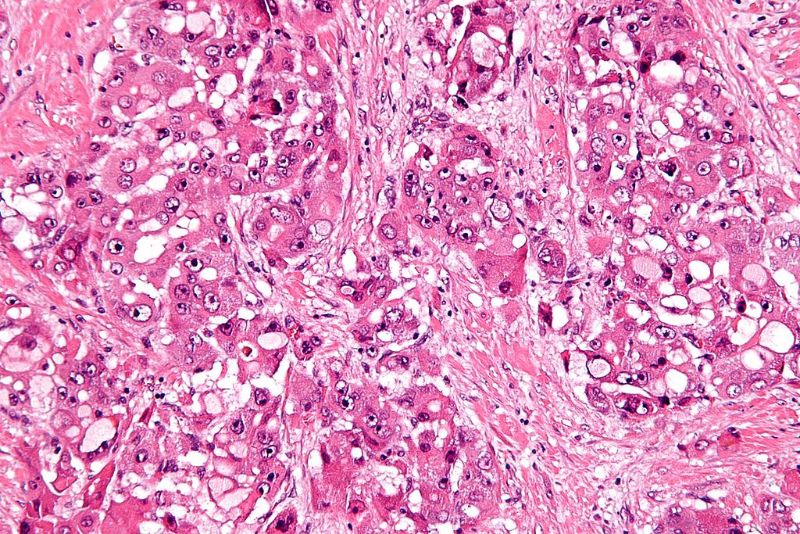
Roche has reported that the combination of Tecentriq (atezolizumab) and Avastin (bevacizumab) improved overall survival (OS) in unresectable hepatocellular carcinoma (HCC) patients in the Phase III IMbrave150 clinical trial.
When compared to sorafenib, the combination also led to a statistically significant and clinically meaningful improvement in progression-free survival (PFS).

Discover B2B Marketing That Performs
Combine business intelligence and editorial excellence to reach engaged professionals across 36 leading media platforms.
Tecentriq is a monoclonal antibody that acts on programmed death-ligand 1 (PD-L1) to activate T-cells, while Avastin is a biologic antibody targeting the vascular endothelial growth factor (VEGF) to hinder the tumour’s blood supply.
The combination of these drugs is intended to boost the immune system’s ability to fight various cancers.
During the multi-centre, open-label, global Phase III trial, the combination was assessed in a total of 501 patients who did not receive systemic therapy previously.
Participants were given 1,200mg Tecentriq and 15mg/kg Avastin on day one of each 21-day cycle or 400mg sorafenib twice per day on days one to 21 of each cycle.

US Tariffs are shifting - will you react or anticipate?
Don’t let policy changes catch you off guard. Stay proactive with real-time data and expert analysis.
By GlobalDataThe treatment was continued until unacceptable toxicity or loss of clinical benefit.
Co-primary endpoints of the study were OS and PFS, while additional endpoints included overall response rate, time to progression, duration of response, safety, pharmacokinetics and patient-reported outcomes.
Data showed a 42% decrease in the risk of death (OS) and 41% reduction in the risk of disease worsening or death (PFS) with the combination versus sorafenib.
The safety of the combination was consistent with the known profiles of individual drugs.
Roche chief medical officer and Global Product Development head Levi Garraway said: “For the first time in a decade, we are seeing a treatment that has improved overall survival for people with unresectable hepatocellular carcinoma compared with the current standard of care.
“Tecentriq in combination with Avastin could transform the treatment of this aggressive disease, and we are working closely with global health authorities in the hope of bringing this treatment option to patients as soon as possible.”
The company is developing Tecentriq as a monotherapy and combination therapy to treat a variety of cancers, including lung, skin, breast, gastrointestinal, head and neck, and gynaecological cancers.





